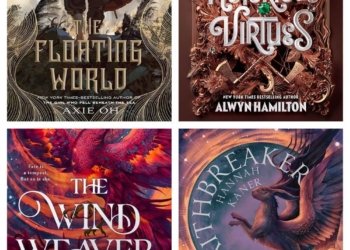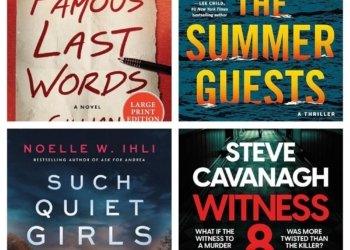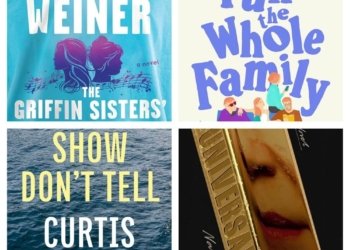No products in the cart.
A Conversation with Leslie Karst, a Mystery Author
Leslie Karst is the author of Molten Death, and of the Lefty Award-nominated Sally Solari mystery series and the memoir Justice is Served: A Tale of Scallops, the Law, and Cooking for RBG.
108
SHARES1.5k
VIEWSLeslie Karst is the author of Molten Death, and of the Lefty Award-nominated Sally Solari mystery series and the memoir Justice is Served: A Tale of Scallops, the Law, and Cooking for RBG. After years waiting tables and singing in a new wave rock band, she decided she was ready for a “real” job and ended up at Stanford Law School. It was during her career as an attorney that Leslie rediscovered her youthful passion for food and cooking and once more returned to school—this time to earn a degree in culinary arts. Now retired from the law, in addition to writing, Leslie spends her time cooking, cycling, gardening, and observing cocktail hour promptly at five o’clock. She and her wife and their Jack Russell mix split their time between Santa Cruz, California and Hilo, Hawai‘i.
Let’s get started with a quick rapid fire.

Q1. If you could be transformed into one mythological creature, which one would you choose?
Pegasus. Because what could be better than the combo of horses and flying?
Q2. What time do you usually go to bed at night?
I generally snuggle into bed with a book around eight, but what time I turn off the light depends on how gripping is the story I’m reading.
Q3. What are the least-likely three words someone would use to describe you?
Tall, reserved, and picky (about food, that is).
Q4. Where did you go on your last vacation?
Oxford, England, “city of dreaming spires,” per Matthew Arnold. Simply magnificent.
Q5. Would you rather find your dream job or win the lottery? You can’t do both.
Dream job, absolutely. Though I guess I’ve already found it, as a writer!
Q6. What is one thing you regret spending money on?
Most recently, an avocado that didn’t ripen properly.
Q7. What object do you misplace or lose the most?
Not much, as I’m pretty darned organized and have a specific place for everything. But I did recently lose my wallet, which was SO frustrating!
Q8. If you were a spy, what would be your codename?
Pegasus.
Q9. What secret about the universe would you most want to learn?
What was going on before the Big Bang.
Q10. What never fails to make you laugh?
The TV show, Frasier.
Q11. What was one “before” and “after” in your life?
Before and after I met my now-wife, Robin.
Q12. What do you think people misunderstand about you?
I’m guessing folks think I drink a lot more than I actually do, since my characters seem to be constantly enjoying cocktail hour.
It’s time for a more detailed conversation, Leslie.
You’ve answered our rapid fire so well, Leslie. Now, it’s time for our readers to know more about the person behind the book.
Q. Tell us about your journey.
I’ve been writing extensively for years—first, with term papers in high school, later drafting literary criticism as an English major in college. But it wasn’t until after receiving my undergraduate degree, when I started a New Wave rock band and began penning songs for the group, that writing became a true vocation for me. Each song was a little story—one of heartbreak or mystery or undying love—so much more fun than cranking out dry essays about the use of figurative language in Chaucer’s Canterbury Tales! It took over twenty more years (during which, as an attorney, I found myself writing dry, legal briefs), but I was eventually able to go back to stories and pursue my dream of writing fiction, and began work on what would become Dying for a Taste, the first novel in my Sally Solari culinary mystery series.
Q. So, what books have you read more than once in your life?
There are a handful of books I come back to every few years: The Lord of the Rings (which my father read to us kids back in 1962); The Alexandria Quartet, by Lawrence Durrell; Howards End, by E.M. Forster; Gaudy Night, by Dorothy L. Sayers. They’re like good friends, with whom I feel the need to keep in touch, even if it’s only once in a while.
Q. Interesting. Who has been the biggest supporter of your writing?
This may sound weird, but I believe it is I who’s been the biggest supporter of my writing over the years. Sure, lots of folks of have encouraged me along the way (my wife, my sister, my literary agent, my writer friends), but ultimately it’s on you to get it done. You have to get your butt in the chair, believe in yourself, and keep going in the face of countless rejections. Perseverance is the name of the game.
Q. Do you hide any secrets in your books that only a few people will find?
There are several thinly-disguised characters and business establishments in my Sally Solari mysteries that some people from Santa Cruz (where the stories take place) might recognize. And in Molten Death, which is set on the Big Island of Hawai‘i, I’ve hidden a few Easter eggs for my fellow Hilo-based mystery authors.
Q. Now comes the most anticipated question that every author must answer. How do you process and deal with negative book reviews?
Ugh. It truly is best not to read them. If it’s fair and legitimate criticism, it just makes you frustrated that you didn’t hear it early enough to revise the book; and if it’s completely unfair and off-the-wall, it just drives you bonkers.
Q. What comes first for you — the plot or the characters — and why?
Since I write two different mystery series, it’s the characters that come first for me. Although plot is of course vital to any good mystery story, a compelling protagonist and memorable cast of characters are what make readers come back to a series, once they’ve read one of the books.
Q. How do you develop your plot and characters?
For the plot, I always start with the crime, who did it, and why, and then I work backwards from that. What sets the plot in motion? Why does the protagonist decide to investigate; what are her motivations? Next I brainstorm subplots, clues and red herrings, and—hardest of all—how and why the crime is solved.
As for characters, I tend to draw inspiration from people I’ve known or met in real life. But they’re all amalgams—a bit of this person, a bit of that person, and often a bit of me. What’s truly fascinating is how my characters have grown and changed over the life of the series—sometimes in ways over which I feel I have little control.
Q. You got 100 points. You need to divide them on the basis of how relevant and important they are to you as a reader and a writer for your book or someone else’s as a reader. Your options are Plot/Story, Book Cover, Marketing, and, Reviews.
Plot/Story: 60%, Dialogues: 20%, Book Cover: 10%, Marketing: 6%, Reviews: 4%.

Q. So, now, about your book. Talk to us about it. No major spoilers.
Retired caterer Valerie Corbin and her wife Kristen have come to the Big Island of Hawai‘i to treat themselves to a well-earned tropical vacation. After the recent loss of her brother, Valerie is in sore need of a distraction from her troubles and is looking forward to enjoying the delicious food and vibrant culture the state has to offer.
Early one morning, the couple and their friend—tattooed local boy, Isaac—set out to see an active lava flow, and Valerie is mesmerized by the shape-shifting mass of orange and red creeping over the field of black rock. Spying a boot in the distance, she strides off alone, pondering how it could have gotten there, only to realize to her horror that the boot is still attached to a leg—a leg which is slowly being engulfed by the hot lava.
Q. What part of the book did you enjoy the most while writing?
The descriptions of the hot, flowing lava were super exciting to write, because I felt as if I were reliving the experience as I set it all down in writing. I still get shivers thinking about witnessing the lava flow on the Big Island of Hawai‘i.
Q. What is your kryptonite as a writer?
The dreaded middle of the book. I find it relatively easy to come up with a murder and victim, whodunit and why, and a set-up for the story as well as how my protagonist gets involved in solving the murder, all of which do a good job of taking care of the beginning and end of a mystery novel. But that middle bit, where you have to drop clues and red herrings, weave subplots into the primary plot, and figure out how your protagonist figures it all out? Oof. That’s mighty hard.
Q. Would you and your main character get along in real life?
Absolutely! Like Valerie, I love to cook, eat, and enjoy cocktail hour; we both love dogs and baseball; and we share a similar snarky sense of humor. Though if she decided to investigate a murder on my watch, I’d tell her “good luck!” and be off. Unlike my protagonist, this gal is a wimp.
Q. What is your writing process like? Are you more of a plotter or a pantser?
For my first couple of books, I was a devout plotter, not starting to write until I had a detailed outline completed. But then, around book three in the Sally Solari series, I had a deadline looming but hadn’t figured out exactly where I was going in the story. So I simply started writing. And it was fun. And exciting! As a result, I now I consider myself a plantser—someone who does some outlining, but who will also just sit down to write and see where it takes me. And sometimes the surprise of where I end up is pretty marvelous!
Q. Let’s talk about the process of writing. Do you do research while writing a book to add more authenticity? What kind of research?
For Molten Death, I did quite a bit of research—about vulcanology, Hawaiian culture, hula, sea turtles, and geothermal energy, to name but a few. The trick is to be accurate in your portrayal of the places, issues, cultures, etc. in your book, yet not hit the reader over the head with descriptions that scream out “I spend hours and hours researching this, so you’d better pay attention!” Less is more.
Oh yeah, and I did a lot of research about the local food. It’s a hard life, but someone’s gotta do it…..
Q. What was your hardest scene to write?
Probably what they call “the big reveal,” i.e., the scene where the protagonist figures it all out and confronts the villain. You want the reader’s heart to be pumping as hard as your character’s, but it all needs to make sense—no last minute revelations or not playing fair with the reader. Which is tough to do.
Q. Well, this has been great. Now, before we wrap this up, do you have any suggestions to help someone become a better writer? If so, what are they?
Believe in yourself and don’t give up. I sent the manuscript for my first Sally Solari book out to well over a hundred agents before finally finding someone to represent me. As developmental editor Kristen Weber once said to me, “You can get hundreds of rejections, and many writers do. But remember: It only takes one yes.”
As I said above, persevere.
Related Posts
A Conversation with Melanie Shawn, a Romance Author
NYT & USA TODAY bestselling author Melanie Shawn lives in Southern California and is a mama to two adult people...
10 Most Anticipated Fantasy Books of Spring 2025
As the seasons change and we step into the vibrant energy of spring 2025, readers everywhere are eagerly anticipating fresh...
10 Most Anticipated Thriller Books of Spring 2025
Are you a bookworm who thrives on heart-pounding suspense and unexpected twists? Get ready to mark your calendars and clear...
8 Most Anticipated Contemporary Books of Spring 2025
Are you a bookworm always on the lookout for the next big literary gem to dive into? Well, get ready...
About Us

Trenzle
Where Trends are made and discovered
Trenzle is your official source of discovering the latest people, work, and ideas that deserve to trend. Discover Authors and their books, Creators and their work, People and their opinions, and Stories from around the globe.
Learn more
Latest Posts
A Conversation with Melanie Shawn, a Romance Author
April 19, 2025
10 Most Anticipated Fantasy Books of Spring 2025
April 18, 2025
Categories
© 2023 Trenzle - Online Author News & Magazine









